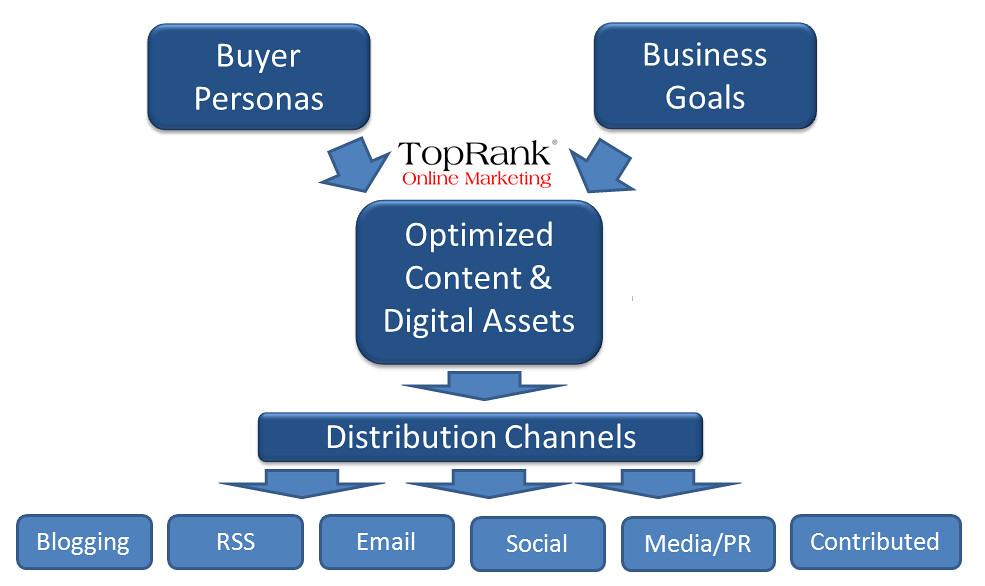How to Get Started with Affiliate Marketing
Affiliate marketing is a great way to earn money online by promoting other companies’ products. In 2021, e-retail sales surpassed $5.2 trillion worldwide, with 37% of people buying products through affiliate links. This guide will provide you with all the information you need to get started with affiliate marketing and start earning commissions.
Benefits of Affiliate Marketing
Affiliate marketing has many benefits for both businesses and affiliate marketers.
- Businesses can increase brand awareness, credibility, and revenue by partnering with affiliate marketers.
- Affiliate marketers can earn commissions for promoting products they believe in, without having to create their own products.
- Affiliate marketing is a low-cost way to start a business, with many affiliate programs being free to join.
Overview of the Guide
This guide will provide step-by-step instructions on how to get started with affiliate marketing, including:
- Choosing Your Niche
- Selecting a Platform
- Finding the Right Affiliate Programs
- Creating Valuable Content
- Building an Audience
- Maximizing Your Earnings
- Staying Compliant with FTC Regulations
Whether you’re a beginner or an experienced marketer, this guide will provide you with the tools and knowledge to succeed in affiliate marketing.

Choosing Your Niche
Choosing the right niche is the first step in starting your affiliate marketing journey. A niche is a specific topic or area of interest that you will focus on promoting products within.
Researching Profitable Niches
Before choosing a niche, it’s important to research which niches are profitable and have a high demand. Here are some resources to help you with your research:
- Finance Strategists provides insights on how effective endorsement and sponsorship management can help businesses increase brand awareness, credibility, and revenue.
- Search Facts offers a guide to using Google Analytics to track website traffic and user behavior. This information can help you identify which niches are popular and in-demand.
Identifying Your Target Audience
Once you have a list of potential niches, you need to identify your target audience. Your target audience is the group of people who are most likely to be interested in the products you are promoting. Here are some things to consider when identifying your target audience:
- Age
- Gender
- Location
- Interests
- Hobbies
- Pain points
Analyzing Competition and Trends
It’s important to analyze the competition within your chosen niche and stay up-to-date with the latest trends. This will help you create content that stands out and appeals to your target audience. Here are some resources to help you with your research:
- Search Facts to improve your search engine rankings and credibility.
- Ahrefs offers a guide to affiliate marketing, including recommended tools and answers to frequently asked questions.
Examples of Successful Niches
Here are some examples of profitable niches that have a high demand:
- Health and wellness
- Personal finance
- Beauty and skincare
- Technology
- Home and garden
- Travel
Remember to choose a niche that you are passionate about and interested in, as this will make it easier for you to create content and promote products within that niche.
Selecting a Platform
After choosing your niche, you need to select a platform to promote your affiliate products. There are various platforms available for affiliate marketing, each with its own pros and cons.
Types of Platforms for Affiliate Marketing
Here are the most popular types of platforms for affiliate marketing:
- Blogs: Blogs are a popular platform for affiliate marketing as they provide a space to create high-quality content and build an audience.
- Social Media: Social media platforms like Instagram, Facebook, and Twitter are great for promoting affiliate products to your followers.
- YouTube: YouTube is a popular platform for creating video content and promoting affiliate products through product reviews and tutorials.
- Email Marketing: Email marketing is a great way to build an audience and promote affiliate products to your subscribers.
Pros and Cons of Each Platform
Each platform has its own advantages and disadvantages. Here are some pros and cons to consider:
-
Blogs
- Pros: blogs allow you to create long-form content, build an audience, and rank in search engines.
- Cons: it can take time to build a successful blog, and it requires consistent content creation.
-
Social Media
- Pros: social media has a large audience, is easy to use, and allows for quick promotion of products.
- Cons: social media can be competitive, and it’s difficult to stand out from the crowd.
-
YouTube
- Pros: YouTube is a popular platform with a large audience, and video content is engaging and shareable.
- Cons: creating high-quality videos can be time-consuming, and building a following on YouTube takes time.
-
Email Marketing
- Pros: email marketing allows you to build a loyal audience, and it’s easy to promote products to your subscribers.
- Cons: building an email list takes time and effort, and it requires consistent communication with your subscribers.
Recommended Platforms for Beginners
For beginners, it’s recommended to start with a blog or social media platform. These platforms are easy to use and require little to no investment. Here are some recommended platforms for beginners:
- WordPress: WordPress is a popular blogging platform that is easy to use and customizable.
- Instagram: Instagram is a great platform for promoting visually-appealing products and building a following.
- Facebook: Facebook is a popular social media platform with a large audience and easy-to-use advertising tools.
Setting Up Your Website or Blog
If you choose to start with a blog or website, you’ll need to set up your website and optimize it for search engines. Here are some steps to follow:
- Choose a domain name and hosting provider
- Install WordPress or another content management system
- Choose a theme and customize your website
- Install essential plugins
- Create high-quality content
Remember to keep your website organized and easy to navigate, and to optimize your content for search engines.
Finding the Right Affiliate Programs
After selecting your platform, you need to find the right affiliate programs to promote. There are many affiliate programs available, each with its own commission rates, payment methods, and terms and conditions.
Types of Affiliate Programs
Here are the most common types of affiliate programs:
- Product Affiliate Programs: Product affiliate programs are the most common type of affiliate program, where you earn a commission for each sale made through your affiliate link.
- Pay Per Lead Affiliate Programs: Pay per lead affiliate programs pay you a commission for each lead you refer to the company, such as filling out a form or signing up for a free trial.
- Pay Per Click Affiliate Programs: Pay per click affiliate programs pay you a commission for each click on your affiliate link, regardless of whether a sale is made.
Affiliate Marketplaces
Affiliate marketplaces are platforms that connect affiliate marketers with companies that offer affiliate programs. Here are some popular affiliate marketplaces:
- CJ Affiliate: CJ Affiliate is a popular affiliate marketplace with a wide range of products and services.
- ClickBank: ClickBank offers a range of digital products, including e-books, courses, and software.
- FlexOffers: FlexOffers offers a range of products and services across various niches.
- ShareASale: ShareASale offers a range of products and services across various niches.
- Awin: Awin is a popular affiliate marketplace with a wide range of products and services.
Tips for Finding the Right Affiliate Programs
Here are some tips for finding the right affiliate programs:
- Choose products that are relevant to your niche and audience
- Look for high commission rates and low refund rates
- Research the company and its products to ensure they are high-quality
- Look for programs with good tracking and reporting tools
- Read the terms and conditions carefully
Recommended Affiliate Programs for Beginners
For beginners, it’s recommended to start with affiliate programs that are easy to promote and have a low barrier to entry. Here are some recommended affiliate programs for beginners:
- Amazon Associates: Amazon Associates is a popular affiliate program with a wide range of products and easy-to-use tracking tools.
- ClickFunnels: ClickFunnels offers a range of digital marketing tools and has a high commission rate.
- Bluehost: Bluehost is a popular web hosting provider that offers a generous commission rate.
- Shopify: Shopify offers a range of e-commerce tools and has a high commission rate.
Remember to choose affiliate programs that are relevant to your niche and audience, and to promote products that you believe in.

The process of producing worthwhile content
One of the most crucial elements of affiliate marketing is producing worthwhile content. Your content ought to be interesting, educational, and pertinent to your target audience and niche. The following advice will help you create worthwhile content:
Understanding Your Audience is Important
Understanding your audience and their interests is crucial before producing content. This will assist you in producing content that appeals to them and drives them to make a purchase. Here are some factors to take into account when writing content:
What are the pain points for your audience?
What interests and passions do they have?
* What kind of content do they interact with?
What queries do they have regarding the goods you are promoting?
Making Various Types of Content
It’s critical to produce various types of content if you want to keep your audience interested. Here are some types of content that are effective for affiliate advertising:
Product Reviews: Product reviews are a fantastic way to examine a product and its features in-depth.
Tutorials: tutorials can be useful for demonstrating a product’s value and offer step-by-step instructions on how to use it.
Comparison Articles: Comparison articles can be useful for assisting your audience in making a choice because they compare various products within a niche.
Listicles: Listicles offer a list of goods in a particular niche and can be useful for giving your audience options and ideas.
How to Improve Your Content for Search Engines
It’s crucial to optimize your content for search engines in order to increase traffic to your website or blog. Here are some pointers for streamlining your content:
- Throughout your content, use pertinent keywords.
Use meta descriptions and descriptive titles. - Structure your content with header tags.
- Provide context and value by including both internal and external links.
- Use alt tags for pictures.
disclosing Your Affiliate Links
To maintain transparency and trust, it’s critical to disclose your affiliate links to your audience. Here are some ways to disclose your affiliate links:
- Make a disclaimer on your website or blog.
- Remove the links to your affiliate websites from your content.
Use social media hashtags to share affiliate links.
Always share your affiliate links with your audience and add value through your content.

Developing Your Audience
For affiliate marketing to succeed, developing an audience is crucial. The group of people who are interested in your niche and are more likely to purchase the goods you are promoting is known as your audience. The following advice will help you grow your audience:
Branding: The Process
Building your audience and establishing yourself as an authority in your niche are both crucial steps in developing a brand. Here are some factors to take into account when developing your brand:
- Pick a distinctive logo and name.
- Create a consistent color scheme and design.
- Establish a distinctive voice and tone
- Establish a mission statement and values
Establishing a Community
You can develop an interested audience by building a community around your brand. Here are some methods for developing a community:
- Launch a Facebook or LinkedIn group.
Host live events or webinars. - Make a blog or website forum.
- Increase social media engagement.
“Engaging Your Audience” –
Building trust and a relationship with your audience requires engaging them. Here are some methods to engage your audience:
- respond to comments and messages
- Host contests and giveaways.
- Ask for recommendations and feedback.
- Provide useful materials and knowledge.
Increasing Your Audience: ###
Growing your audience requires time and effort, but it’s crucial for affiliate marketing success. The following advice will help you expand your audience:
- Promote your content on social media.
- collaborate with other bloggers and influencers in your niche
- attend conferences and events in your niche
- Promote your content with paid advertising.
Keep in mind to consistently interact with your audience and to give them value. This will assist you in gaining a devoted following and establishing yourself as an authority in your niche.

Tracking and Analyzing Your Results
Tracking and analyzing your results is important for measuring your affiliate marketing success and making data-driven decisions. Here are some ways to track and analyze your results:
Using Google Analytics
Google Analytics is a free tool that can help you track your website traffic and user behavior. Here are some metrics to track in Google Analytics:
- Traffic Sources: This shows you where your website traffic is coming from, such as social media, search engines, or referral sites.
- Bounce Rate: This shows you the percentage of people who leave your website after viewing only one page.
- Conversion Rate: This shows you the percentage of people who take a desired action on your website, such as making a purchase or filling out a form.
Tracking Your Affiliate Links
Tracking your affiliate links can help you see which products and promotions are driving the most sales. Here are some ways to track your affiliate links:
- Use an affiliate management platform, such as ShareASale or CJ Affiliate
- Use a link shortening tool, such as Bitly or Pretty Links
Analyzing Your Results
Analyzing your results can help you make data-driven decisions and optimize your affiliate marketing strategy. Here are some ways to analyze your results:
- Look for patterns and trends in your data
- Experiment with different promotions and products
- A/B test your content and calls to action
- Set goals and track your progress
Remember to regularly track and analyze your results, and to use this data to make informed decisions about your affiliate marketing strategy.

Staying Compliant with FTC Regulations
Staying compliant with Federal Trade Commission (FTC) regulations is important for affiliate marketers. The FTC requires that affiliate marketers disclose their relationship with the companies they are promoting and provide honest and accurate information about the products they are promoting. Here are some guidelines for staying compliant with FTC regulations:
Disclosing Your Affiliate Links
The FTC requires that affiliate marketers disclose their affiliate links to their audience. Here are some ways to disclose your affiliate links:
- Use a disclaimer on your website or blog
- Disclose your affiliate links within your content
- Use hashtags on social media to disclose affiliate links
Providing Honest and Accurate Information
The FTC requires that affiliate marketers provide honest and accurate information about the products they are promoting. Here are some ways to provide honest and accurate information:
- Only promote products that you have personally used and believe in
- Disclose any flaws or limitations of the products you are promoting
- Be transparent about any compensation you receive for promoting products
Staying Up-to-Date with FTC Guidelines
The FTC regularly updates their guidelines for affiliate marketers, so it’s important to stay up-to-date with any changes. Here are some ways to stay up-to-date with FTC guidelines:
- Read the FTC’s Endorsement Guides regularly
- Attend webinars or conferences on FTC compliance
- Consult with a lawyer or legal expert on FTC compliance
Remember to always disclose your affiliate links and provide honest and accurate information about the products you are promoting. Staying compliant with FTC regulations will help you build trust with your audience and avoid any legal issues.

Are You Ready to Begin Affiliate Marketing?
You now have a solid foundation for beginning affiliate marketing, congratulations! The following are some important pointers from this manual:
- By promoting other businesses’ goods and earning a commission, affiliate marketing is a cheap way to make money online.
- To begin affiliate marketing, pick a niche, locate pertinent affiliate programs, produce worthwhile content, and develop an interested audience.
- Success in affiliate marketing depends on developing your audience. Think about developing a brand, developing a community, luring your audience, and expanding your audience.
- Tracking and analyzing your results is crucial for gauging your affiliate marketing success and making decisions that are driven by data.
- For affiliate marketers, staying in compliance with FTC rules is crucial. Make sure to disclose your affiliate links and give accurate and truthful information about the goods you are promoting.
Keep in mind that evaluating affiliate marketing requires time and effort. Always concentrate on giving your audience value, and be patient and consistent.
We appreciate you reading this guide on how to begin affiliate marketing. Check out our other articles and resources if you want to read more fantastic content on digital marketing.
Questions
Who can get started with affiliate marketing?
Anyone can get started with affiliate marketing, regardless of experience or skill level.
What is the best way to choose a niche for affiliate marketing?
The best way to choose a niche for affiliate marketing is to focus on something you are passionate about or have expertise in.
How much money can I make with affiliate marketing?
The amount of money you can make with affiliate marketing depends on various factors such as your niche, audience, and promotion methods.
What are some common mistakes to avoid in affiliate marketing?
Common mistakes to avoid in affiliate marketing include promoting too many products, not disclosing affiliate links, and not providing value to your audience.
How do I find relevant affiliate programs?
You can find relevant affiliate programs through affiliate marketplaces such as ShareASale or by reaching out to companies directly.
What are some effective ways to promote affiliate products?
Effective ways to promote affiliate products include creating valuable content, building an email list, and using social media to engage your audience.